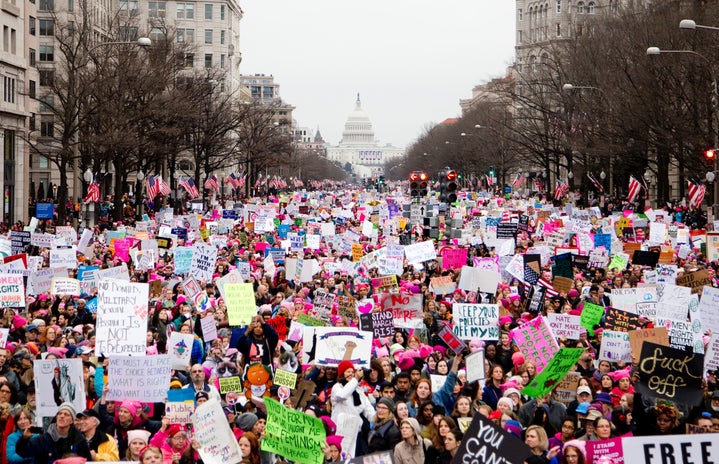Many of you have probably heard of the recent Alabama Supreme Court case regarding abortion. Or was it pregnancy? Bodily autonomy? Wait, what was that case even about? I get it. A quick Google search of the “Alabama Supreme Court case” results in articles with titles including IVF, frozen embryos, a lesbian couple, and the ever-present question of when life begins. Oftentimes, news companies will add an alarming title to their article in hopes their clever language will make you read it. But for those of us who get really confused when politico starts yapping about current events with professional-sounding but actually really confusing words, I’m here to break down the Alabama case for you in the most understandable way I can.
What You Need To Know To Understand This Case: How IVF Works (The Basics)
To fully understand this case, you need to know the basics of the IVF* process. This is one way for women to get pregnant without having sex, usually used by infertile or queer women. During the egg retrieval process, it is normal for many eggs to be retrieved from a woman, although only one is needed for fertilization. The extra fertilized eggs are typically frozen and held at the fertility clinic, or in this case, a hospital, in case these women come back wanting another child through IVF. If these fertilized eggs are tampered with, they are no longer viable for the woman to use for a pregnancy.
*IVF: In-vitro fertilization
~I am, by NO means, an IVF professional. I am completely aware that I am simply scratching the surface of this complicated procedure. With that being said, click here if you want to learn more about it from an actual professional.~
What You Need To Know To Understand This Case: Wrongful Death of a Minor Act
This is an Alabama law written in 1872 and is pretty self-explanatory. In 2012, the Alabama Supreme Court revised this law to include a fetus that is still developing in utero as a child. This law has yet to be applied to fertilized eggs that are not implanted into a woman (still at the fertility clinic). That is what this Alabama case is arguing.
Summary of the Case
The plaintiffs* are three couples that all went through the IVF process with the same company in Alabama. All three couples had successful pregnancies and left their spare eggs in the possession of the fertility clinic, which held them at a hospital. In late 2020, a patient in the hospital went into the unit that stored the fertility clinic’s frozen embryos, attempted to grab some, and dropped them, which effectively destroyed them.
The couple then sued the clinic under the Wrongful Death of a Minor Act. It was brought to court for the first time, and the plaintiff couples lost. The judge stated that these eggs exist in a lab and are not yet children. The plaintiffs then appealed** to the Alabama Supreme Court. The appeal ended up being successful, and the Alabama Supreme Court ruled in favor of the three couples. The couples are now seeking punitive damages for the death of their children against the fertility clinic and hospital.
*Plaintiff: the party that initiates a lawsuit in court
**Appeal: When a party requests their case to be tried again by a higher court
~I compiled this summary using information from the Johns Hopkins Bloomberg School of Public Health. To read a more detailed summary, click here.~
The Impact: What Does This Ruling Mean For Alabama?
First of all, what does this ruling mean? Let’s start with a quote from one of the ruling judges on the Alabama Supreme Court:
“…to all unborn children without limitation. And that includes unborn children who are not located in utero at the time they are killed.”
The judge here is basically stating that these fertilized eggs that exist in cryo-preservation in labs and hospitals are still declared to have personhood under the law even though they have not been implanted inside the women yet. Therefore, the destruction of them would be illegal under the Wrongful Death of a Minor Act.
This raises several questions for Alabamians. What if a woman freezes her eggs with the fertility clinic but later decides she doesn’t want any more children? Does the clinic have to keep these eggs for the rest of eternity since they legally cannot destroy them? What if they are accidentally damaged or destroyed during the retrieval or implantation process? Fertility clinics also test embryos for genetic mutations before implanting them into the woman. If a genetic mutation is found, are they no longer allowed to destroy it?
Before this, there were eight fertility clinics in Alabama. After the final ruling on February 16, two of them have already closed in fear of possible legal and/or criminal liability issues. This means all patients of these clinics with upcoming procedures have had their appointments canceled, delaying their hopeful pregnancy.
Seeing that two clinics have closed within two weeks (at the time of this publication) of the ruling, it is reasonable to predict that there will be more following in their footsteps. This, in turn, further restricts the possibility of many Alabama women getting pregnant. This is especially important to women who are unable to get pregnant naturally, namely infertile and queer women, as mentioned before.
~Up until here, I have been giving you the facts of the case in the most unbiased way possible. I am now going to go into my personal, biased opinion. Feel free to stop reading if you don’t want to hear it.~
This case is endlessly baffling to me. As I am writing this, I’m still struggling to understand how the Alabama Supreme Court justices could claim a fertilized egg OUTSIDE the uterus is a human life that deserves the same protection as the real human children of Alabama. That fact alone, if applied to all states, would increase the U.S. population by at least a million while also adding a new gender under the U.S. census of “not yet known.”
This case is also so dangerous for the six remaining operating fertility clinics in Alabama. Frozen embryos die. They become no longer viable. They get destroyed. And most importantly, accidents happen. It is a fact of fertility science that not every fertilized egg is going to be able to survive in the uterus. If these clinics cannot destroy these eggs, where are they going to put them? I’m no expert, but I can’t imagine these cryo-preservation storage containers have infinite space to hold embryos that will never be used.
Most importantly, if these clinics close, what will happen to Alabama women who cannot get pregnant naturally? Are they supposed to be okay with the fact that they may have to cross state borders just to have a child? About 19% of American women have fertility problems. This number excludes the number of queer couples who have to rely on medical procedures like this one if they want a child. I find it extremely unfair that these women are going to have to jump through extreme legal hoops just to get pregnant.
There is obviously an indefinite number of problems that this court case ruling introduces that I did not mention. But, overall, I believe that this is nothing but an exclusionary, hyper-conservative decision used to exert even more control over the women of Alabama. I hope for their sake, as well as the sake of legal precedent, that this ruling is challenged until the definition of a child under the Wrongful Death of a Minor Act is changed once again.


